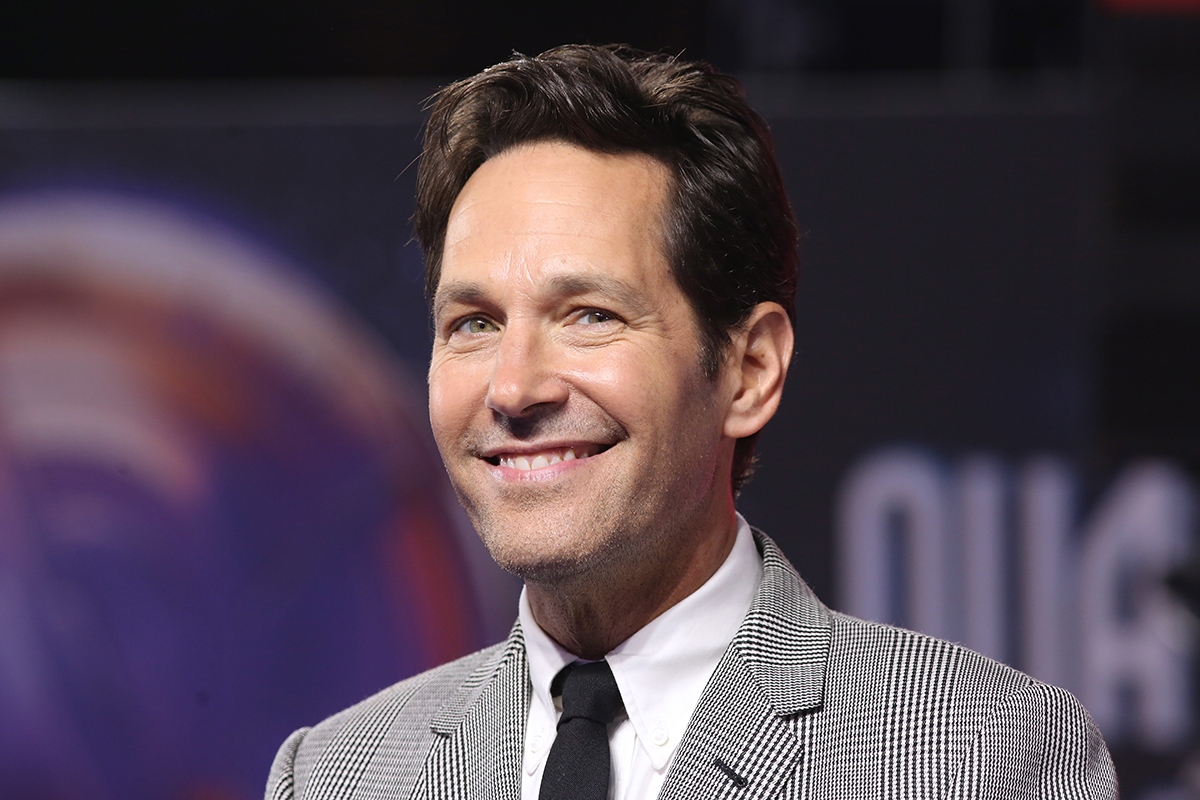Paul Rudd’s father, Michael Rudd, passed away in 2008. In a recent interview with People, he shared the ideas of spirituality that his Jewish father, a British immigrant and Vietnam veteran, passed on to him.
While Rudd and his father had a good relationship, they, not unlike many father and sons in the ’70s and ’80s, didn’t have too many heart-to-hearts. But Rudd, who says his family was “not really religious,” does remember one conversation about “religion and spirituality” that really shaped his values and the way he thinks about the world.
“It was a major moment to have with my dad,” Rudd recalled, saying ideals his father shared during that the conversation, which took place during a financially perilous time for his family, are still ones he believes in “wholeheartedly.”
In that heart-to-heart, the elder Rudd told him that he believed “that you should treat people the way you’d want to be treated. And if I do that, if there’s anything else [after this life], I hope that covers it for me, that all bases are kind of covered.”
Michael also told Rudd that “you’re only here for a short while anyway, so try and do something that adds to the pot, that makes life a little bit easier for somebody else, and you’re contributing to the world while you’re here and not just taking what you can from it.”
Both these ideas are rooted in the ideas of the mitzvah — commandment — to love your neighbor as thyself, which comes from Leviticus.
As per Hillel’s famous quote: “What is hateful to you, do not do to your fellow: this is the whole Torah; the rest is the explanation; go and learn.”
The whole concept of Judaism is to make the world a better place — one good deed, one mitzvah (yes, the word means commandment, but it’s also often used in the context of doing charitable and kind deeds) at a time.
Tikkun olam, the idea of repairing the world which is popular in Reform and progressive Judaism, is based on that. And the concept was probably part of Rudd’s childhood: The actor had his bar mitzvah at a Reform synagogue, and the family did frequent a synagogue in Kansas City. At the time of his death from cancer, Paul’s father was a member of the New Reform Temple in the Midwestern city. He was buried in the town’s Jewish Louis Memorial Center.
And of course, Rudd’s father’s ambiguous, questioning ideas around the afterlife are actually super Jewish. While Judaism doesn’t believe in clear-cut heaven and hell in the way many of our Christian compatriots do, Jewish texts do mention the afterlife, even if it’s shrouded in mystery.
Rudd told People that if he could speak to his father now, he would ask him all about what the afterlife is like, including whether or not he got to meet all of his dead relatives — “Did you stop at the grandparents’ or did you have great-great-grandparents that you never knew that were like, ‘Mike, finally. Great to see you.’ Wait till you see what this whole thing’s about. Get ready for your mind to be blown.'”
Paul Rudd was raised by two Jewish parents, mostly in Kansas City — his father worked for TWA and the family moved around a lot. He says that he did experience antisemitism, and that he was one of a few Jews in his school.
Nowadays, the former Sexiest Man Alive (I mean, not really former in our hearts, but others have been crowned since him) claims that he is not “a practicing Jew,” he’s “perfected it.” It’s clear that these Jewish values his father instilled in him still run deep.
The actor has also played plenty of Jewish roles, and while his great-grandparents did change their name from Rudnitsky to Rudd, the former bar mitzvah DJ has always been pretty proud to be Jewish.
Another Jewish sort-of father figure of Rudd’s — the great playwright Alfred Uhry, who famously wrote “Driving Miss Daisy” and “Parade,” the latest production of which made news after being plagued by antisemitic protesters — gave him a good framing for thinking about his Judaism.
Rudd starred in Uhry’s “The Last Night of Ballyhoo,” which was all about the relationship between German and Eastern European Jews in 1939, and the writer became his surrogate Jewish dad in New York, inviting him to Passover seders at his home. It was at one of these seders, Rudd recalled in a 2012 Jewish Journal interview, that Uhry told him, “You know, if you’re Jewish, it almost doesn’t even matter how religious you are. If you’re Jewish, it’s just in the marrow of your bones.”








